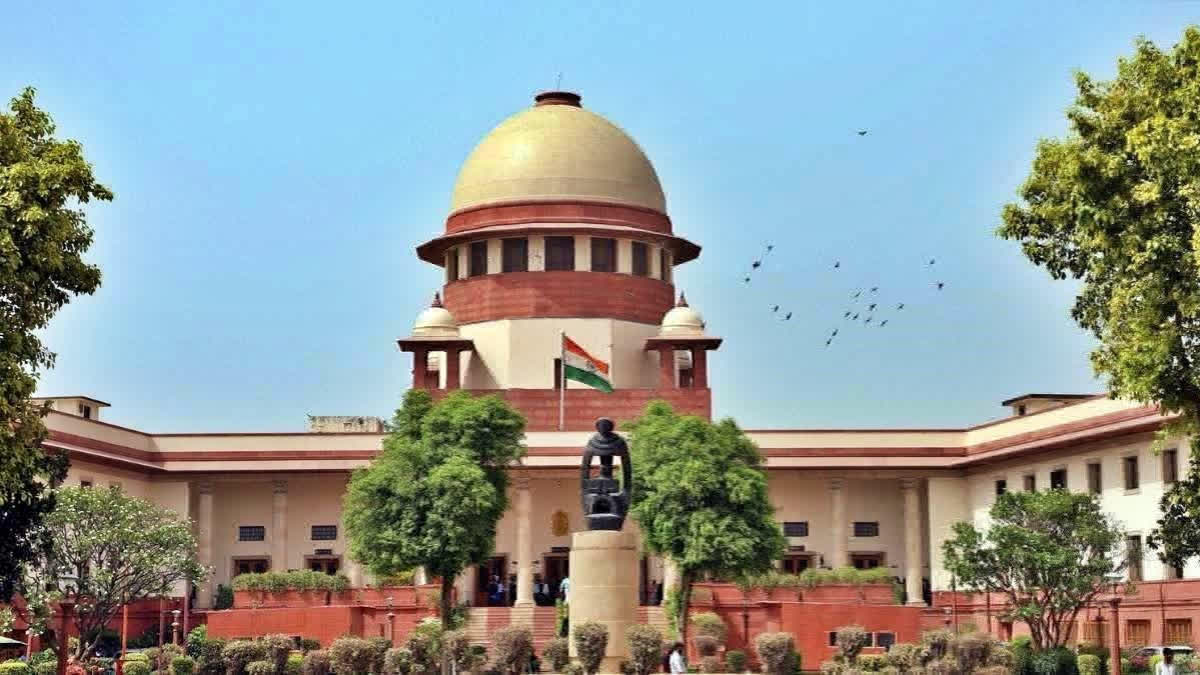New Delhi: The Supreme Court on Monday while hearing a batch of pleas in connection with ethnic violence in Manipur, observed that Aadhaar cards should be issued to those displaced only after carrying out necessary verification and it cannot pass a general order and emphasised that someone would have to verify if applicants are genuine and what if someone is an illegal entrant?
A counsel submitted before a bench led by Chief Justice of India D Y Chandrachud that a lot of rehabilitation activities have taken place and the state government and Centre have taken many steps to ensure that the apex court-appointed committee directions are followed.
The counsel said there are some directions yet to be followed and Aadhaar cards have to be regenerated for displaced persons and banks have to be given instructions to provide continued services to such persons.
The bench, also comprising justices J B Pardiwala and Manoj Misra, said that some will have to verify if they're genuine citizens and questioned, what if someone is an illegal entrant? The Chief Justice said the court can say that the authorities will verify if the person is a genuine citizen but it cannot pass a general order.
The counsel emphasized that she was referring to the scenario post-verification. The Chief Justice said if it is post-verification then there is no problem and added that the court will pass the orders on Aadhaar cards and bank accounts, subject to verification.
The bench noted that for those people who have lost their Aadhaar cards, it'd be easy, as their biometrics will already be there in the record. The top court said it should be ensured that Aadhaar cards are provided to all displaced persons who may have lost their cards due to displacements, and whose records are already available with UIDAI
Also read: NIA arrests suspected terrorist in Manipur amid ethnic unrest
The bench said UIADI, which has biometrics of persons to whom Aadhaar cards have already been issued, can cross-check the details with reference to each individual who has claimed that she/he lost the cards, and stressed that Aadhaar should be issued after necessary verification being carried out.
During the hearing, the top court also directed the Bar associations in Manipur to not prevent any lawyer, regardless of their community, from appearing before the courts, and clarified that the direction is not passed on any complaint but merely to caution all lawyers to ensure that access to justice is not prevented. The bench made it clear that any violation of this direction would amount to contempt of the court's order.
Senior advocate Anand Grover contended before the bench that lawyers appearing for a particular committee were being threatened and prevented from appearing before the Manipur High Court. He said lawyers must be provided with protection.
Senior advocate Ranjit Kumar, representing the Manipur High Court Bar Association, refuted the allegations and stressed that all lawyers are granted access. Solicitor General of India Tushar Mehta, representing Manipur, said that as per the report filed by the registrar general in 30 days, 2638 cases were listed for hearing and the facility of virtual hearing was made available every day, which establishes that the high court is functioning normally.
During the hearing, the bench, regarding various grievances raised by the petitioners in the Manipur ethnic violence case, said it could not run the state administration, and petitioners had to trust the Justice Gita Mittal Committee to do its job. The bench said either it could scrap the committee and hear the matter or the petitioners trust the committee.
The Chief Justice told the petitioners’ counsel, "We do not intend to run the Manipur administration… You allow the process to work out….” The bench seemed to agree with the state government’s contention that complaints should be first brought before the committee for a resolution.
The apex court constituted the Justice Mittal Committee to intervene and monitor relief and rehabilitation, restoration of homesteads, religious places of worship, etc, in Manipur. The apex court had said the committee would endeavour to re-instil the Manipur people’s belief in the rule of law. At a juncture, the Chief Justice said that “giving a hearing is part of the healing process, we know where to draw the line too”.



